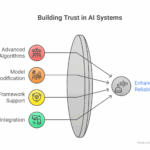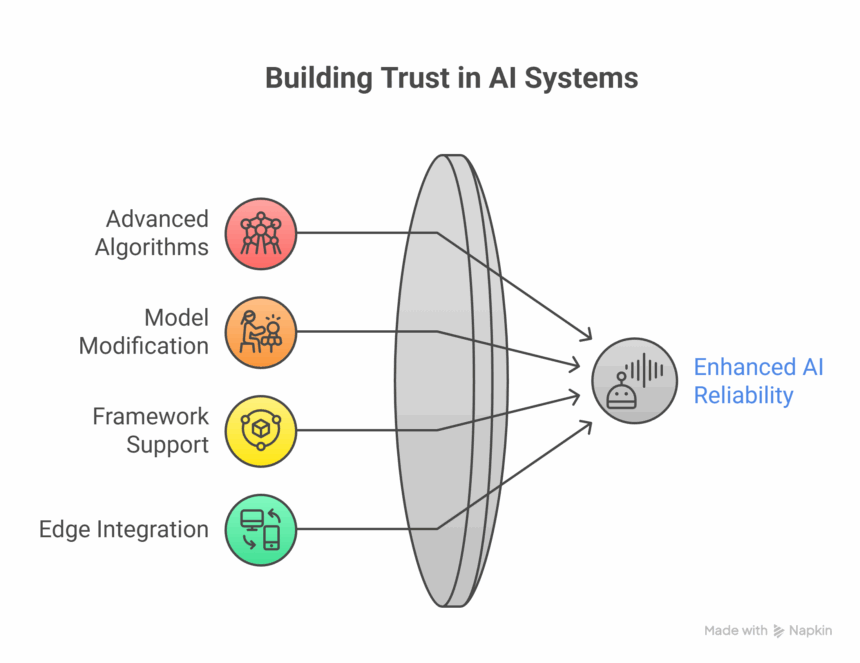AI tools are transforming business operations by improving efficiency and decision-making. This article explores the top AI tools, including Microsoft Power BI, Amazon SageMaker, and Google Cloud AI Platform, that enhance productivity, customer experience, and data analysis. Discover how these tools can change your business processes and drive growth. For more information on AI advancements, check out MLExperts’ blog.
Exploring the Best AI Tools for Business
Microsoft Power BI: Business Intelligence Redefined
Launched in 2015, Microsoft Power BI is a leading business intelligence tool that enables organizations to visualize data in real-time. Its capabilities allow for informed decision-making, important in today’s fast-paced market. The platform integrates with various data sources, creating interactive dashboards that enhance data accessibility for all users. For example, Heathrow Airport uses Power BI for real-time passenger flow monitoring, improving operational efficiency. This democratization of data empowers non-technical staff to generate reports using natural language prompts, reducing the time needed for data analysis. For more insights on business intelligence solutions, visit Tableau’s business intelligence solutions.
Amazon SageMaker: Streamlining Machine Learning Workflows
Introduced in 2017, Amazon SageMaker provides a comprehensive suite for building, training, and deploying machine learning models. This tool streamlines the entire machine learning process, making it easier for developers and data scientists to implement AI solutions. With features like SageMaker Pipelines for automation and Model Registry for artifact management, organizations can accelerate their machine learning projects. For instance, Cisco transformed its ML deployment in just two weeks using SageMaker, showcasing its impact on operational efficiency. To explore additional information about machine learning tools, check out IBM’s machine learning offerings.
Google Cloud AI Platform: Comprehensive AI Solutions
Launched in 2021, the Google Cloud AI Platform integrates advanced AI functionalities into cloud services, facilitating the management of machine learning models. This platform enables businesses to use AI at scale, offering tools for building, training, and deploying models efficiently. Healthcare provider Sami Saúde achieved a 13% productivity gain by utilizing this platform, demonstrating its value in enhancing operations. Its seamless integration with other Google Cloud services enhances flexibility and scalability, making it a suitable choice for organizations looking to adopt AI solutions tailored to their needs. For additional resources on cloud AI, visit AWS’s machine learning services.
AI Tools for Enhancing Business Processes
ThoughtSpot: Real-Time Analytics for All Users
Founded in 2012, ThoughtSpot empowers users to conduct real-time analytics through natural language queries. This capability allows non-technical users to generate instant visualizations, democratizing data access across organizations. For example, a sales team can quickly analyze customer data without needing SQL expertise, enhancing decision-making speed and fostering a data-driven culture within businesses. For additional information on enhancing team collaboration with AI tools, visit MLExperts’ blog.
Glean: Revolutionizing Knowledge Search
Launched in 2021, Glean significantly improves knowledge retrieval within organizations by integrating over 100 workplace tools into a single search interface. This universal search layer transforms information retrieval, allowing employees to find internal information quickly and efficiently. For instance, Super.com saved 1,500 hours monthly by using Glean, which also accelerated employee onboarding by 20%. By reducing the time spent searching for data, Glean enhances productivity and supports effective decision-making across teams.
IBM Watson Assistant: Conversational AI for Businesses
Introduced in 2011, IBM Watson Assistant focuses on conversational AI, enabling businesses to enhance customer service through intelligent chatbots and virtual assistants. This tool improves customer interactions by providing timely and relevant responses to inquiries. For example, Sicredi improved its customer service operations significantly by implementing Watson Assistant, allowing human agents to focus on more challenging issues and ultimately enhancing overall customer satisfaction.
Final Thoughts
AI tools are important for modern businesses seeking to enhance productivity and operational efficiency. By using these AI tools, businesses can improve decision-making and gain a competitive edge in today’s market. Embracing these technologies is key for staying relevant and successful in the changing business environment. We understand that exploring these options can be challenging, and we’re here to help. Let’s explore together how these tools can best fit our needs and drive our success. Reach out to us at MLExperts’ blog for further insights on AI tools and their impact.
Frequently Asked Questions
What are the top AI tools for business productivity?
The top AI tools for business productivity include Microsoft Power BI, Amazon SageMaker, Google Cloud AI Platform, ThoughtSpot, and IBM Watson Assistant. Each tool offers unique capabilities that enhance efficiency and decision-making.
How can AI tools improve customer experience?
AI tools improve customer experience by automating responses, personalizing interactions, and providing timely support through conversational AI. For instance, IBM Watson Assistant enables businesses to engage more effectively with their customers.
What is the role of machine learning in business intelligence?
Machine learning plays a key role in business intelligence by enabling organizations to analyze large datasets, uncover patterns, and make data-driven decisions that enhance operational efficiency and strategic planning. Tools like Microsoft Power BI and Google Cloud AI Platform exemplify this application.
How do AI tools automate business processes?
AI tools automate business processes by streamlining repetitive tasks, enhancing data analysis, and facilitating real-time decision-making. For example, Salesforce Einstein automates customer service interactions, allowing organizations to allocate resources more effectively and improve overall productivity.
What are the benefits of using AI-driven decision-making tools?
AI-driven decision-making tools offer benefits such as improved accuracy in predictions, faster data analysis, enhanced operational efficiency, and the ability to use large datasets for strategic insights. Tools like Microsoft Power BI and Google Cloud AI Platform exemplify how these benefits can drive business growth.












